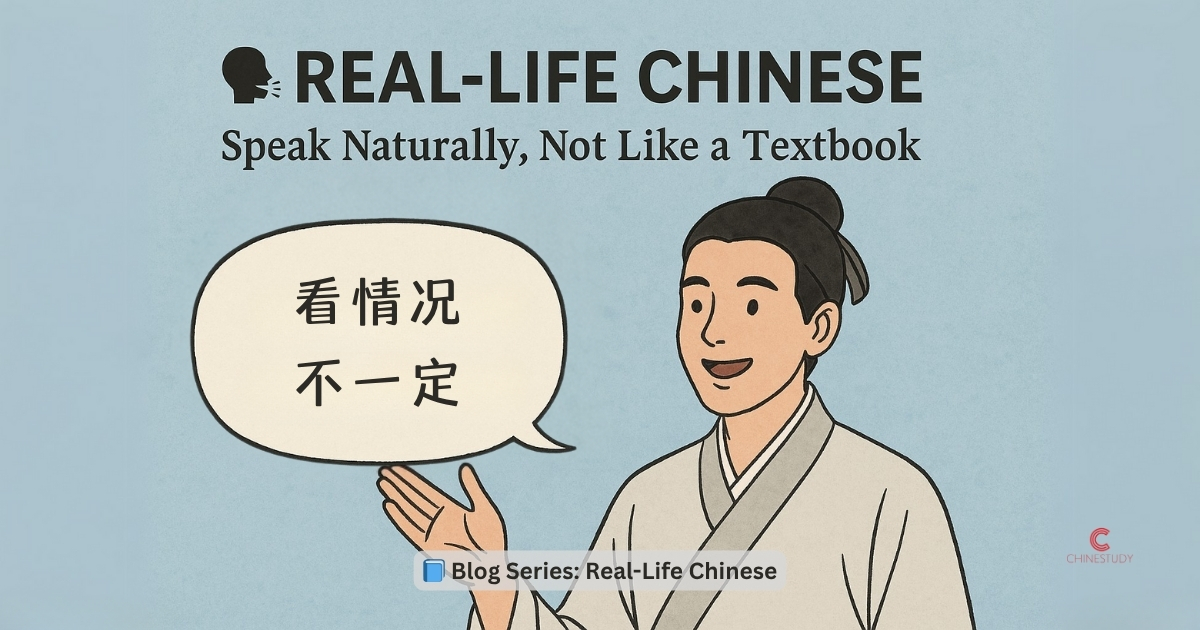
🗣️ How to Say “It Depends” Naturally in Chinese — Not Just “我不知道”
Want to say “it depends” in Chinese and sound natural? Instead of the textbook “我不知道” (wǒ bù zhīdào), try native phrases like “看情况” (kàn qíngkuàng) or “不一定” (bù yídìng) to sound more flexible and conversational.

🗣️ How to Say “I’m Not Free” Without Sounding Cold — Not Just “我没空”
“我没空” is correct, but it can sound cold. In this post, you’ll learn how to say “I’m not available” more naturally with phrases like “最近挺忙的”, “改天吧”, and “看情况吧”.

How to Say “I Like It” Naturally in Chinese — Not Just “我喜欢”
“I like it” in Chinese isn’t always “wǒ xǐhuan.” Native speakers use softer, more natural phrases like tǐng xǐhuan de, mán xǐhuan de, and hái mán xǐhuan de to sound more casual and real.
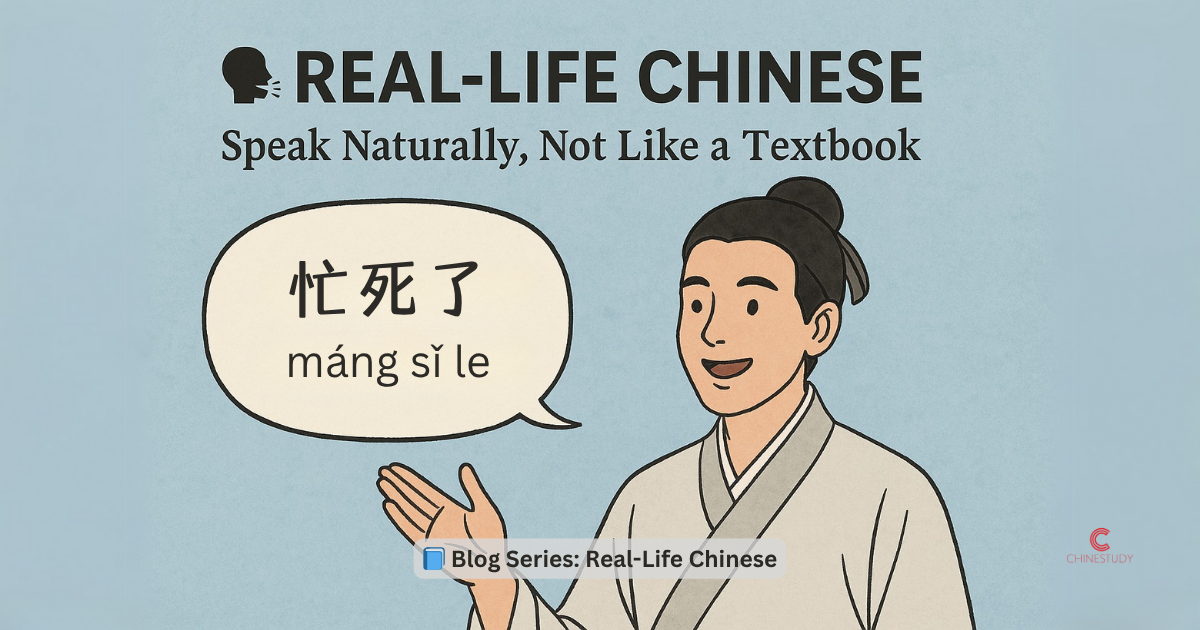
How to Say “I’m Busy” Naturally in Chinese — Not Just “我很忙”
“我很忙” is correct but sounds robotic. Learn how native speakers really say they’re busy with phrases like “挺忙的” and “忙死了” — colorful, casual, and truly Chinese.
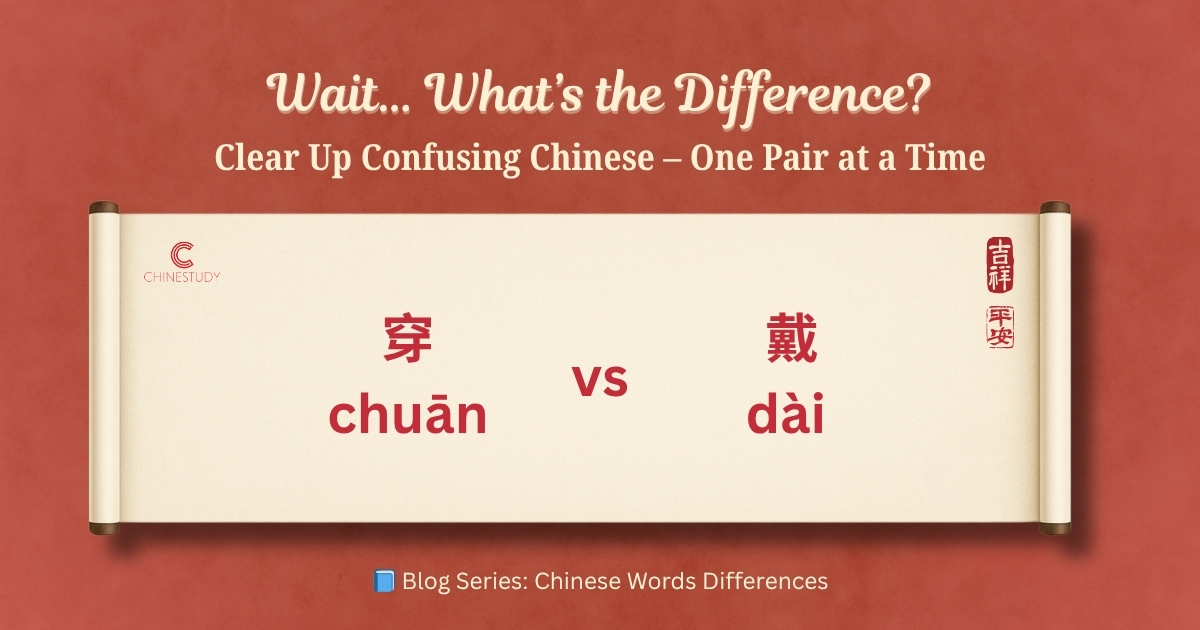
👗 穿 chuān vs 戴 dài – What’s the Difference?
Think both 穿 and 戴 mean “to wear”? Not quite! In Chinese, different words are used for clothing vs accessories. This blog shows you when to use which — with examples, mistakes, and a quick quiz!
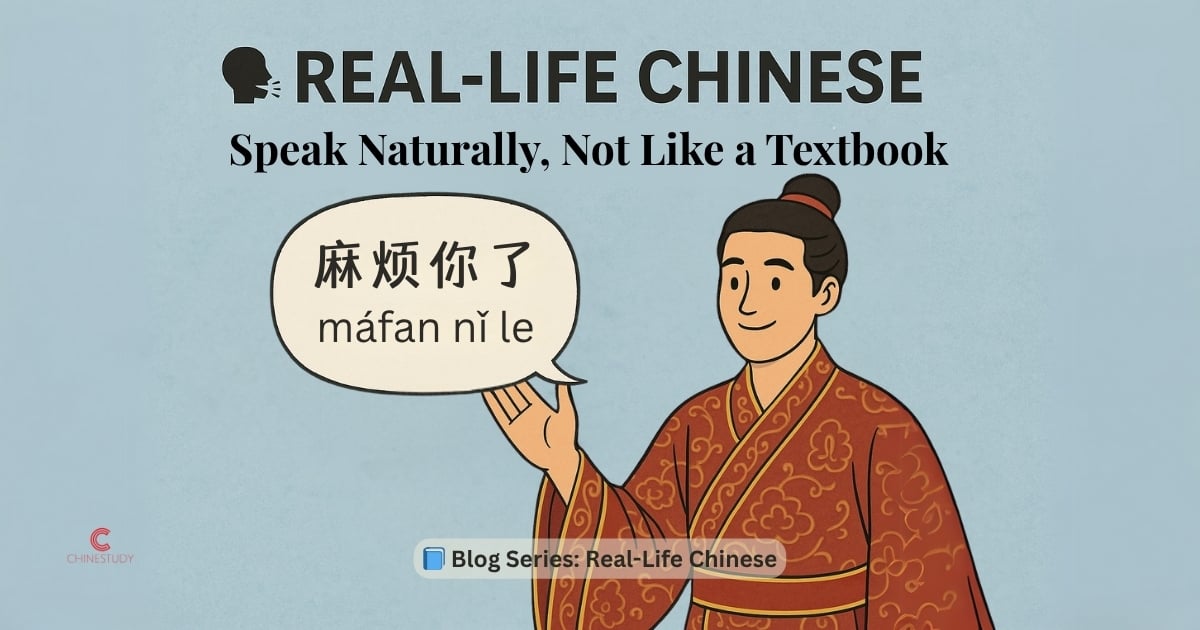
How to Say “Thank You” Naturally in Chinese — Not Just “谢谢”
“谢谢 Xièxie” is polite, but it can sound generic. Learn three heartfelt ways to show gratitude the way native speakers do.
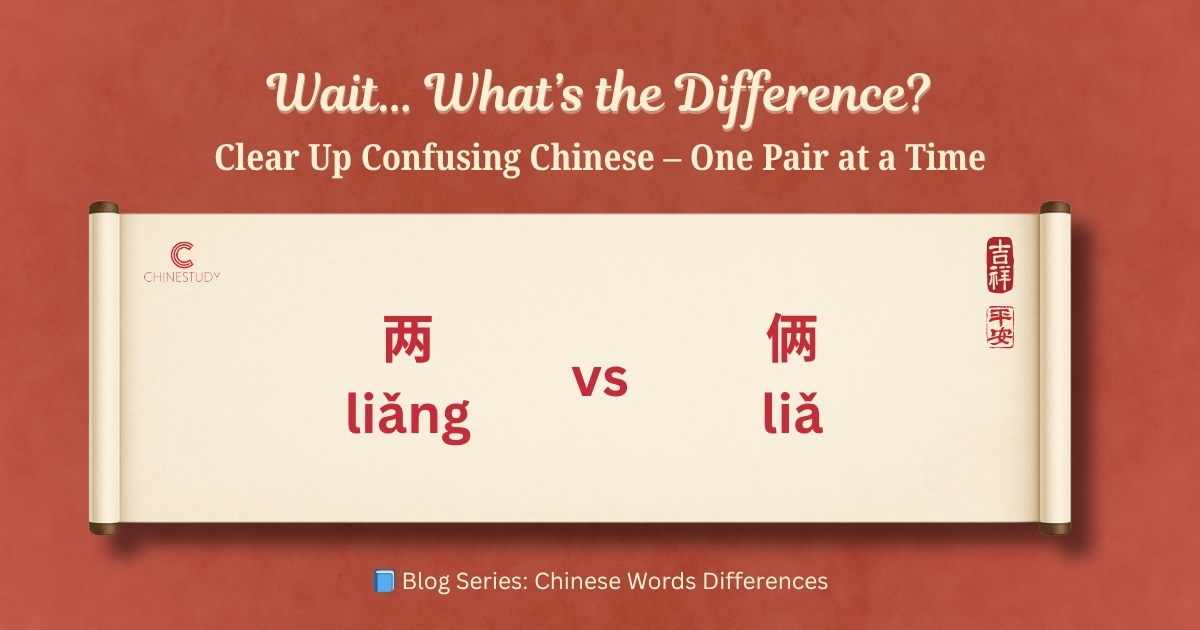
🧐 两 liǎng vs 俩 liǎ – What’s the Difference?
Think 两 (liǎng) and 俩 (liǎ) are the same? Not quite! This short guide will help you tell them apart and avoid common mistakes.
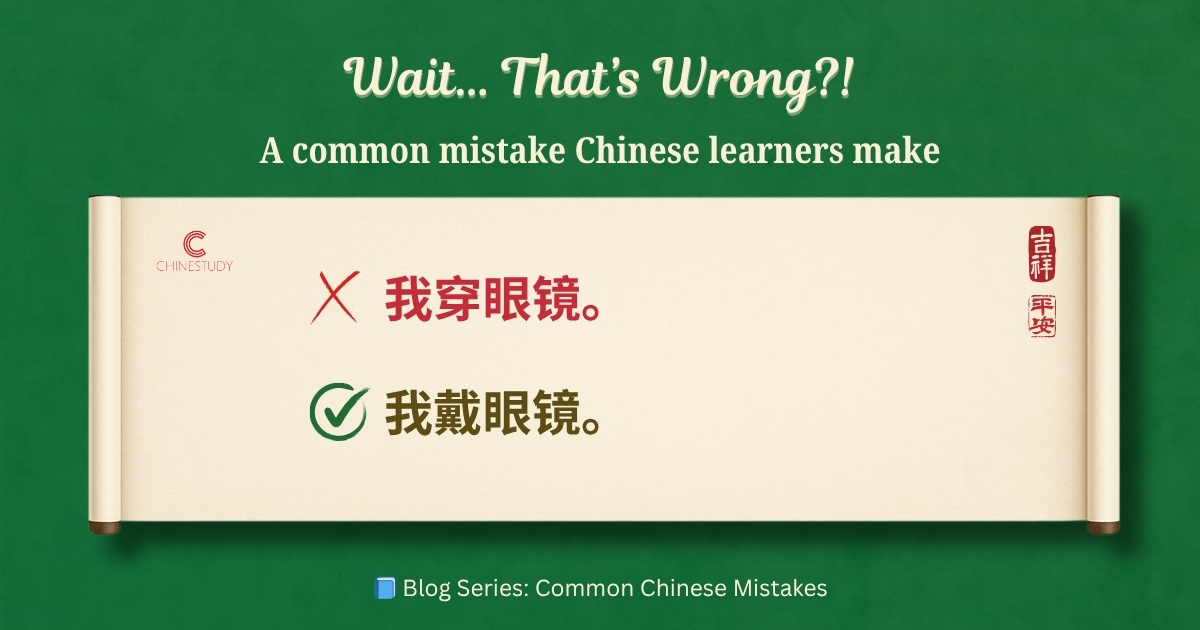
😅 我穿眼镜 – What’s Wrong with This Sentence?
Many learners say “我穿眼镜,” but this sentence is wrong in Chinese! In this post, you’ll learn the correct verb for “wear” and avoid this common mistake.
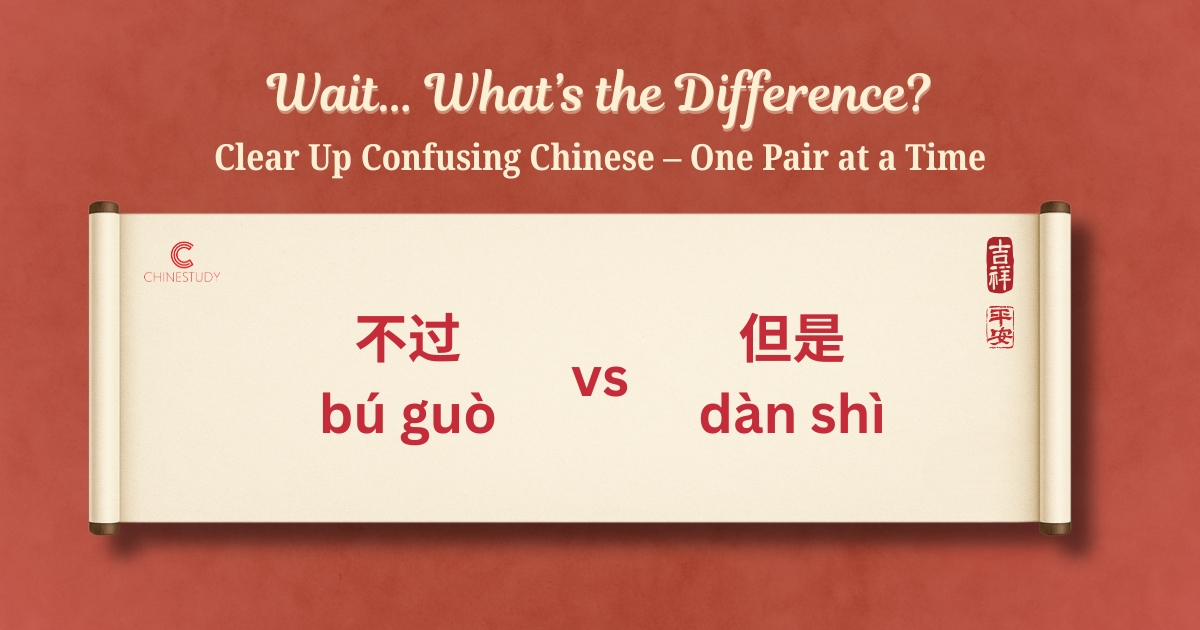
🧐 不过 búguò vs 但是 dànshì – What’s the Difference?
Think 不过 and 但是 both mean “but”? You’re not wrong — but they feel very different! This blog shows how to use each one naturally, with examples, grammar tips, and a short quiz.
